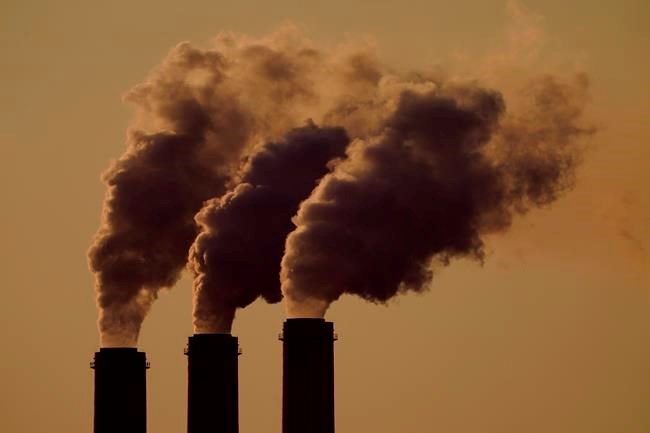EDMONTON — Governments around the world expect to produce twice as much fossil fuels as their climate commitments would allow, a new international report has found.
"When you add up (predictions) for fossil fuel production, they're way higher than what the levels would be if the world was meeting their climate commitments," said Peter Erickson, a co-author of the study produced by a coalition of groups including the International Institute for Sustainable Development and the United Nations.
The report released Wednesday added up government forecasts of oil, gas and coal production by 2030 and compared them to what fossil fuel production would be if the world lived up to the Paris climate agreement.
It found the 15 countries — including Canada — that produce three-quarters of those fuels expect to produce more than twice as much as they should if the world is to keep global warming at 1.5 degrees. Even if the target is set at two degrees, those production forecasts would overshoot the mark by 45 per cent.
Erickson said those predictions aren't realistic. Added together, they exceed estimates of the total demand for fossil fuels by 2030.
"Each government wants to be the last one to produce," he said.
"Every country thinks that they're the one. But every country can't be the one."
The organizations did a similar analysis in 2019. Not much has changed since then, Erickson said.
But he did single out Canada for praise this year. It's one of the few nations that has downgraded its fossil fuel production forecasts in view of increasingly restrictive climate legislation and eventually falling demand.
"Canada is on a better path in its analysis and planning. (It) can be a model for other countries."
In 2020, Canada cut its forecasted 2040 oil production by about a million barrels a day. At nearly six million barrels, that's still a 20 per cent increase from current levels.
Erickson said it's not necessarily true that production cuts in one country will simply be made up somewhere else.
"Someone else will produce some of that. But it's not one-to-one. Supplying less does make demand go down."
The report comes as governments prepare to head to Glasgow, Scotland, for a conference on the progress of the Paris Accord. The so-called COP 26 meeting would be a good place to start, Erickson said.
"Canada could go to COP and say, 'We're going to start planning for a gradual wind-down of oil and gas just as we're planning to reduce our emissions.'"
Erickson said it's time governments face up to the need for production to decline. The Net Zero Producers Forum — five countries, including Canada, that produce about 40 per cent of the world's oil and gas — would be a good place to start those discussions, he said.
"It's not just about making the production less dirty. It's also about producing less."
This report by The Canadian Press was first published Oct. 20, 2021.
— Follow Bob Weber on Twitter at @row1960
Bob Weber, The Canadian Press



